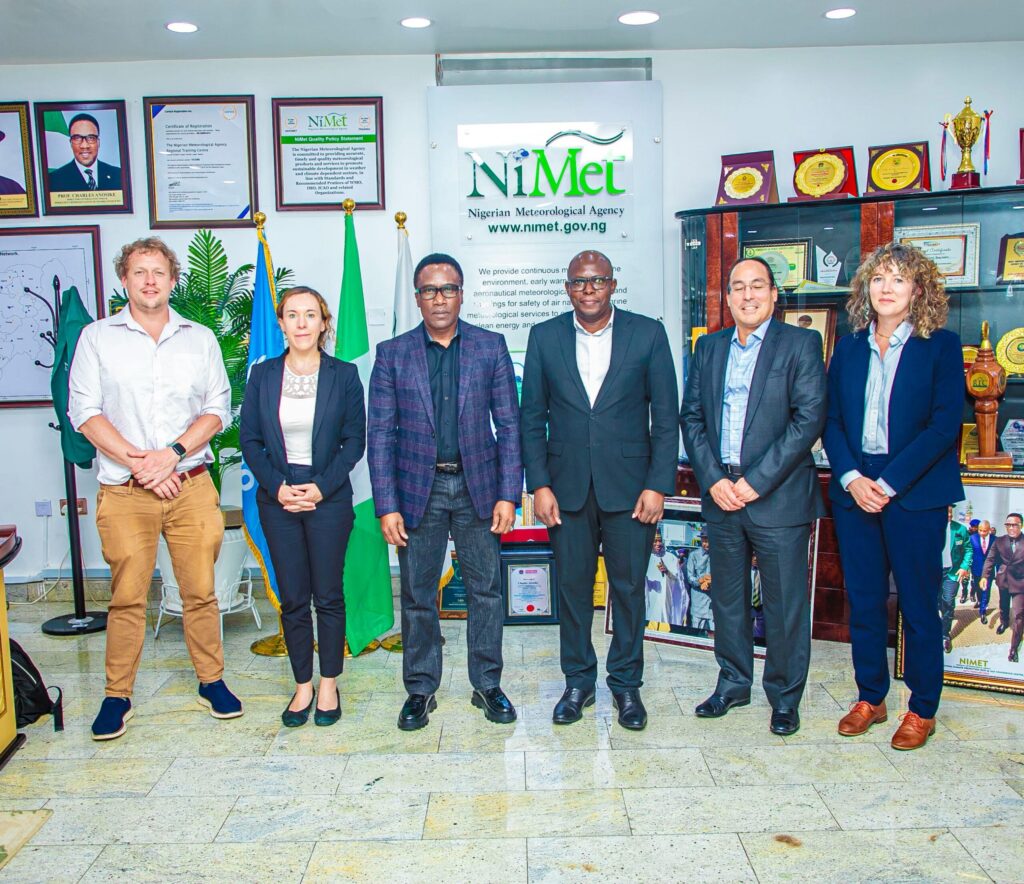The Nigerian Meteorological Agency (NiMet) has hosted a high-level delegation from the World Bank at its headquarters in Abuja as part of an ongoing mission aimed at enhancing Disaster Risk Management (DRM) in Nigeria.
The mission, led by Mr. Francis Samson Nkoka, Senior Disaster Risk Management Specialist at the World Bank, seeks to deepen technical collaboration with Nigerian institutions to improve national resilience to climate and weather-related hazards.
In his remarks, Professor Charles Anosike, Director General/CEO of NiMet and Nigeria’s Permanent Representative to the World Meteorological Organization (WMO), emphasized that strengthening climate advisory services requires a multifaceted approach.
This includes improving the accuracy and timeliness of information, tailoring services to local contexts, and fostering stronger stakeholder engagement.
He also highlighted the importance of leveraging technology, securing sustainable financial support, and investing in human capital development to build a robust and responsive climate service system.
The World Bank delegation included Mr. Oscar Ishizawa, Lead Disaster Risk Management Specialist; Ms. Mary Elinor Boyer, Senior DRM Specialist; Ms. Nathalie Andrea Wandel, DRM Specialist; and Mr. Christopher Cameron Hann, a consultant in hydrometeorology.
This visit builds on earlier engagements held in January 2025 between the World Bank and the Federal Government of Nigeria, which focused on establishing integrated frameworks for climate risk management and emergency preparedness.
As part of the visit, the delegation received a guided tour of NiMet’s facilities, where they observed the advanced technologies used to generate accurate weather forecasts and climate advisories.
The team commended NiMet’s efforts in modernizing its infrastructure and delivering timely, science-based climate services that support Nigeria’s national development objectives.
The engagement underscores a shared commitment between NiMet and the World Bank to strengthen Nigeria’s resilience to climate shocks through innovation, strategic investment, and sustained institutional partnerships.















